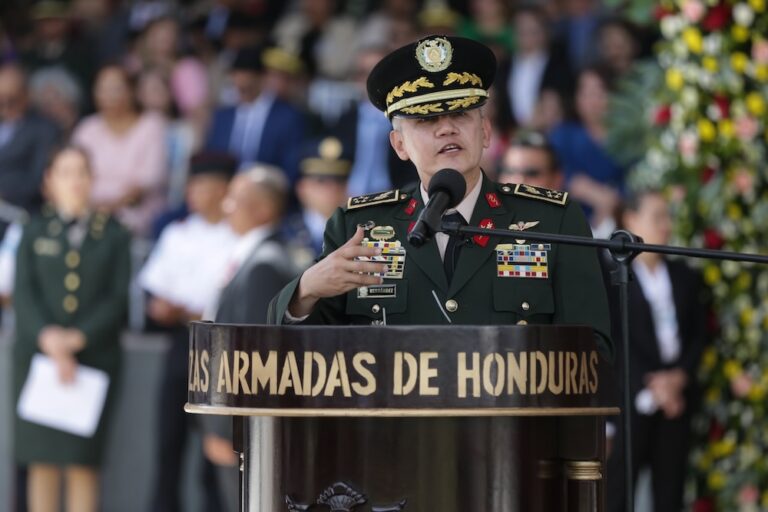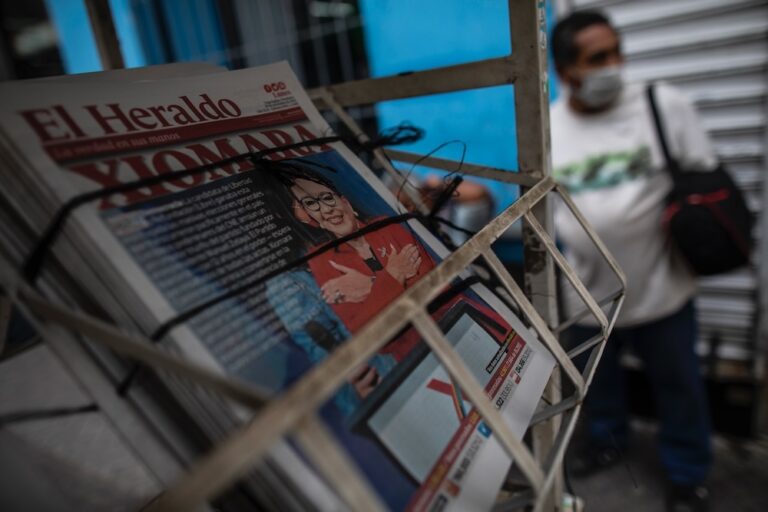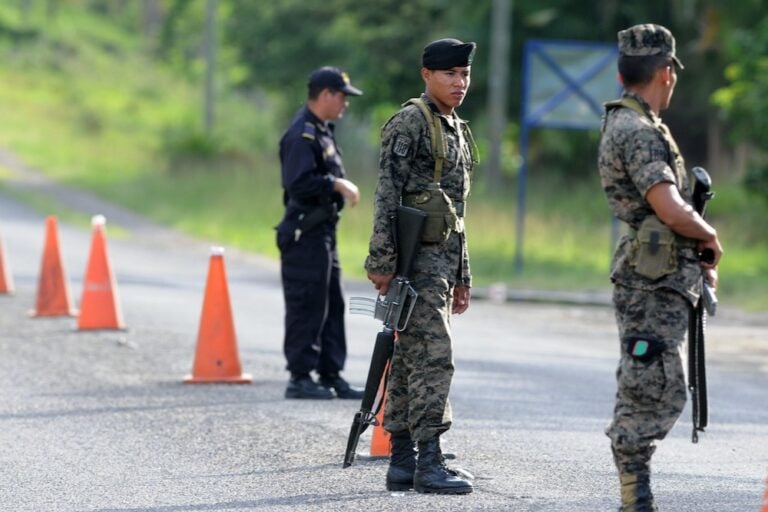(PROBIDAD/IFEX) – In a decisive ruling on 2 November 2006, the first court of appeals of Tegucigalpa, the Honduran capital, dismissed the defamation lawsuit against journalist Esdras Amado López, owner and manager of the Tegucigalpa-based television station Canal 36. In their statement, the judges held that the unanimous ruling was based on the existence of […]
(PROBIDAD/IFEX) – In a decisive ruling on 2 November 2006, the first court of appeals of Tegucigalpa, the Honduran capital, dismissed the defamation lawsuit against journalist Esdras Amado López, owner and manager of the Tegucigalpa-based television station Canal 36.
In their statement, the judges held that the unanimous ruling was based on the existence of various irregularities in the text of the lawsuit and in the process of its submission.
On 28 June 2005, a lawsuit was filed against López by the then deputy minister of housing, Jhony Kafati Segebre, during the administration of former president Ricardo Maduro, who left the post in January 2006 when a new government was elected into office.
Kafati Segebre, a shareholder in the bank La Constancia, was accused by López of using his political influence to attempt to obtain a fresh injection of cash into the bank, in the form of the retirement funds of public employees, so as to improve its financial standing; the bank shares were later purchased by another bank. The journalist also announced that the then-public servant’s bank was in financial difficulty and in so doing managed to sabotage the planned transaction.
Kafati Segebre then brought charges of defamation against López and a second journalist, Eduardo Maldonado, of the programme “Hable como hablo”. Maldonado managed to escape legal action due to procedural errors committed by the plaintiff.
The case against López, on the other hand, grew more complicated as the charges against him multiplied to six. However, on 2 November, 18 months after the legal action was initiated, the court found that serious procedural errors had been committed by the plaintiff. The ruling also stated that, as a result, López “was denied his rights to due process, and his fundamental freedoms violated.”
In a paid advertisement in a local newspaper, López thanked various social sectors and labour groups for the solidarity they had shown him through his ordeal, and declared that “the free press won” in Honduras.
The final ruling in this case is not the first of its kind thus far in 2006, inasmuch as, on 31 October 2006, another court similarly dismissed defamation charges against two journalists of the digital publication “Revistazo.com”, brought forward in response to their reporting on irregularities in the operations of a private security company (see IFEX alert of 3 November 2006).
Research by the Committee for Free Expresión (Comité por la Libre Expresión, C-Libre) indicates that more than 20 journalists have been charged or threatened in the last two years, with the frequency of such actions peaking in September 2006.
This alert was prepared by PROBIDAD with information provided by C-Libre.


